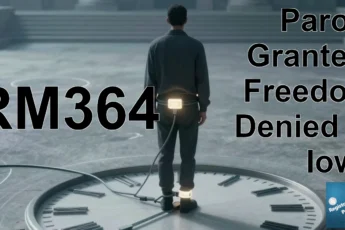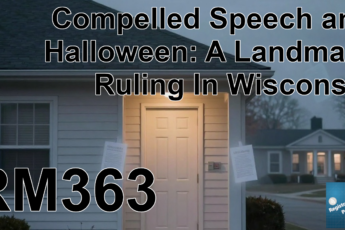In recent news, the state of Oklahoma has been thrust into the legal spotlight over a controversial statute requiring convicted sexual offenders to bear a visible “sex offender” mark on their driver’s licenses. A lawsuit opposing this policy, filed by the National Association for Rational Sexual Offense Laws (NARSOL), alleges that this practice infringes upon the First Amendment rights of thousands of individuals while subjecting them to ongoing public shaming and potential harm.
The case not only ignites critical discussion around civil rights and privacy but also questions the role of state governments in balancing public safety concerns with constitutional freedoms. This article delves into the nuances of this lawsuit, the arguments from both sides, and the broader implications for similar laws across the U.S.
The Context: A Legal Challenge to Oklahoma’s Registry Laws
At the heart of the lawsuit is Oklahoma statute Title 47 § 6-111(E), which mandates individuals required to register on the state’s sex offender registry to carry a driver’s license marked with the words “SEX OFFENDER.” Such a designation is visible whenever identification is required—for example, during a traffic stop or while conducting routine transactions such as cashing a check, purchasing alcohol, or applying for a job.
Plaintiffs in the case—comprising individual registrants and NARSOL—argue that this policy forces participants to engage in “compelled speech” by broadcasting the government’s declaration that they are a danger to society. According to the complaint, requiring individuals to carry a branded license not only violates their First Amendment rights but also unfairly stigmatizes them, subjecting them to humiliation, discrimination, and even threats of physical harm.
The legal team also asserts that Oklahoma’s designation does not meet constitutional muster, especially considering recent litigation in other states that have struck down similar policies on constitutional grounds. Despite these rulings, Oklahoma continues to enforce its heavily debated marking requirement.
What Is a “Class Action” Lawsuit—and Why Does It Matter?
The lawsuit has been brought as a class action, allowing plaintiffs to represent thousands of impacted individuals, rather than requiring each person to file separate claims. This streamlines the legal process and helps to highlight the larger, systemic nature of the issue. However, class actions face a significant hurdle: gaining class certification.
Under Federal Rule of Civil Procedure 23, a court will certify a class only if it meets stringent criteria, which include:
-
Numerosity: The group of plaintiffs must be so large that it’s impractical for all participants to file their own cases (in this instance, over 6,700 individuals are on the Oklahoma registry).
-
Commonality: The legal questions or issues must be shared among all members of the class. In this case, the overarching First Amendment question applies to everyone impacted by the statute.
-
Typicality: The claims of the lead plaintiffs must be typical of those of the broader class.
-
Adequacy: The legal representation for the class must be competent enough to fairly and effectively advocate on behalf of all members.
While NARSOL is optimistic about clearing these hurdles, concerns remain. For instance, being an organizational plaintiff exposes NARSOL to potential legal risks, as the state could demand sensitive information—such as financial records or membership data—during the discovery phase of the litigation.
Examining the Constitutional Arguments
Key to the lawsuit is the assertion that Oklahoma’s law violates the First Amendment by compelling speech. Compelled speech occurs when individuals are forced by the government to express a specific message, a practice that federal courts generally rule unconstitutional unless it serves a narrowly defined, compelling state interest.
-
Does the law compel speech?
Yes, argue the plaintiffs. The forced display of a “SEX OFFENDER” designation effectively coerces individuals into transmitting the government’s message to others, a form of speech they may not agree with or wish to communicate. Opponents of the law argue that such branding overly burdens individuals in countless facets of everyday life and risks ostracizing people who may already be working toward rehabilitation. -
Is there a compelling government interest?
Oklahoma may argue that the designation helps ensure public safety by informing community members of certain risks. However, critics question whether the law achieves this end in the least restrictive manner possible. Many constitutional scholars have argued that public safety goals must always be balanced against individual rights, especially when alternatives exist—such as discreet coding on IDs accessible only to law enforcement. -
How do courts decide cases under different levels of scrutiny?
Constitutional challenges like this one require courts to apply varying levels of scrutiny to the law. - Rational basis review: The law is presumed constitutional as long as it seeks a legitimate government objective, regardless of whether the means employed are effective.
- Strict scrutiny: The highest level of judicial review, requiring the government to prove a “compelling interest” and show that the law is narrowly tailored to achieve that interest without infringing on constitutional rights.
In this case, the plaintiffs argue that strict scrutiny should apply due to the First Amendment implications. If the court agrees, the state will need to demonstrate not just the rationale behind the law but also that there are no less invasive alternatives—an uphill battle for the defense.
Real-World Implications of Oklahoma’s Policy
For those affected by Oklahoma’s policy, the impacts go far beyond theoretical constitutional debates. Plaintiffs have reported frequent instances of public shaming, harassment, and denial of services upon presenting their branded licenses. Drivers’ licenses are a ubiquitous form of ID in the U.S., required for countless transactions or day-to-day interactions that many take for granted.
One particularly problematic aspect of the statute is the requirement that registrants renew their branded licenses annually—for $38.50—unlike other state residents, whose licenses are typically valid for several years. This creates a financial and logistical burden without clear evidence that it serves public safety goals.
Critics argue that this law is emblematic of broader issues with the treatment of individuals on sex offender registries. Rather than emphasizing rehabilitation, registries and policies like Oklahoma’s often prioritize public shame, stripping individuals of dignity and complicating their reintegration into society.
The Bigger Picture: A Nationwide Debate
Oklahoma is far from the only state grappling with the issue of marked identification for registrants. States like Louisiana and Alabama have introduced or defended similar policies, though several were struck down for unconstitutionality. If the lawsuit succeeds, it could set a critical precedent, discouraging other states from implementing comparable laws.
That said, some states still defend their decisions under the belief that such laws serve a deterrent function or protect communities. “This is how far we’ve strayed from our moral compass,” one commenter in the lawsuit suggests, lamenting the cultural and political climate that allows such measures to persist.
What Happens Next?
The legal path ahead is complex and likely to be lengthy. Once the state is officially served with the complaint, it will have initial deadlines to respond. Pre-trial motions, discovery, and potential hearings may follow. And given the stakes, it’s almost certain that the losing side will appeal, potentially dragging the case into higher courts—including the Supreme Court.
Actionable Takeaways and What to Watch
- Stay Informed: Similar litigation in other states could influence how this case unfolds. Watch for updates about other First Amendment challenges involving registrants.
- Advocate for Reform: If you believe these laws contradict American values of fairness and reintegration, support organizations pushing for legislative change.
- Understand Your Rights: For those impacted by sex offender registration laws, staying aware of legal developments is crucial to understanding your rights and limitations.
As this case advances, its outcome will likely reverberate not just across Oklahoma but nationwide. At its core, it raises fundamental questions about what society considers fair and constitutional in its treatment of those who have already served their time. Are we prioritizing accountability and reintegration—or perpetuating shame and stigma? The courts may soon decide.



Leave a Comment